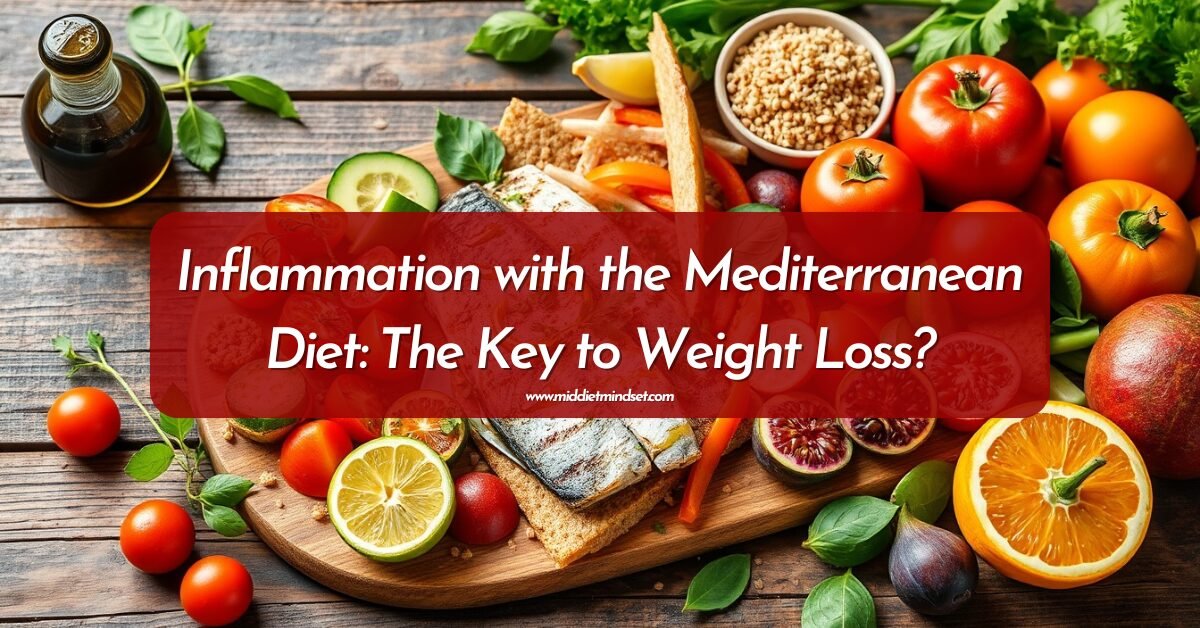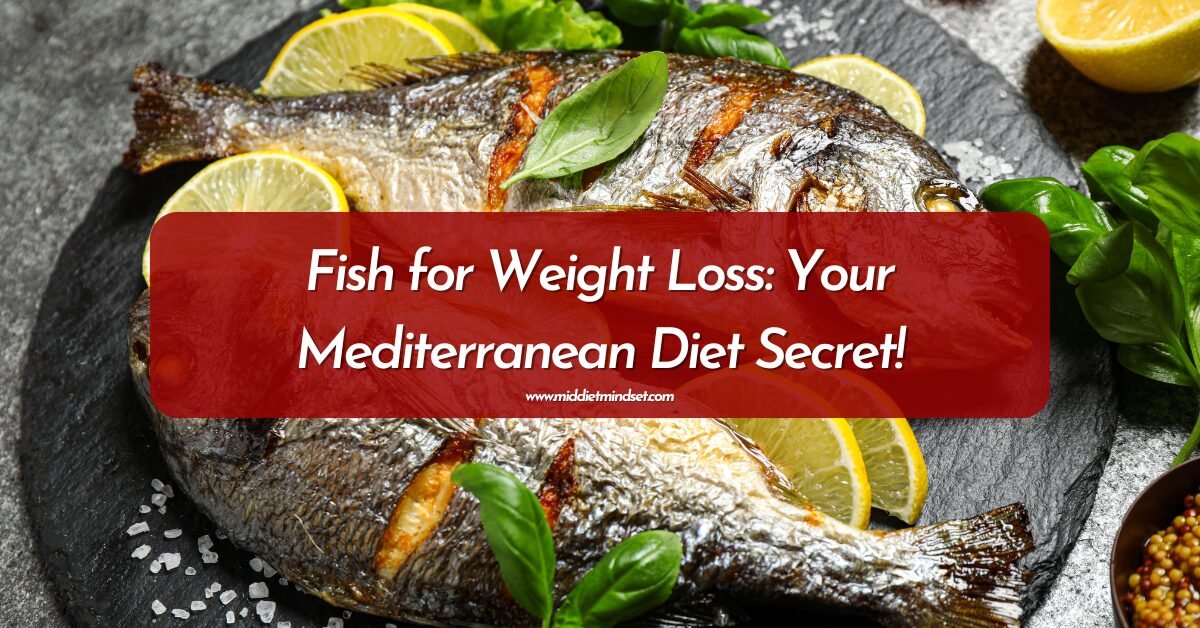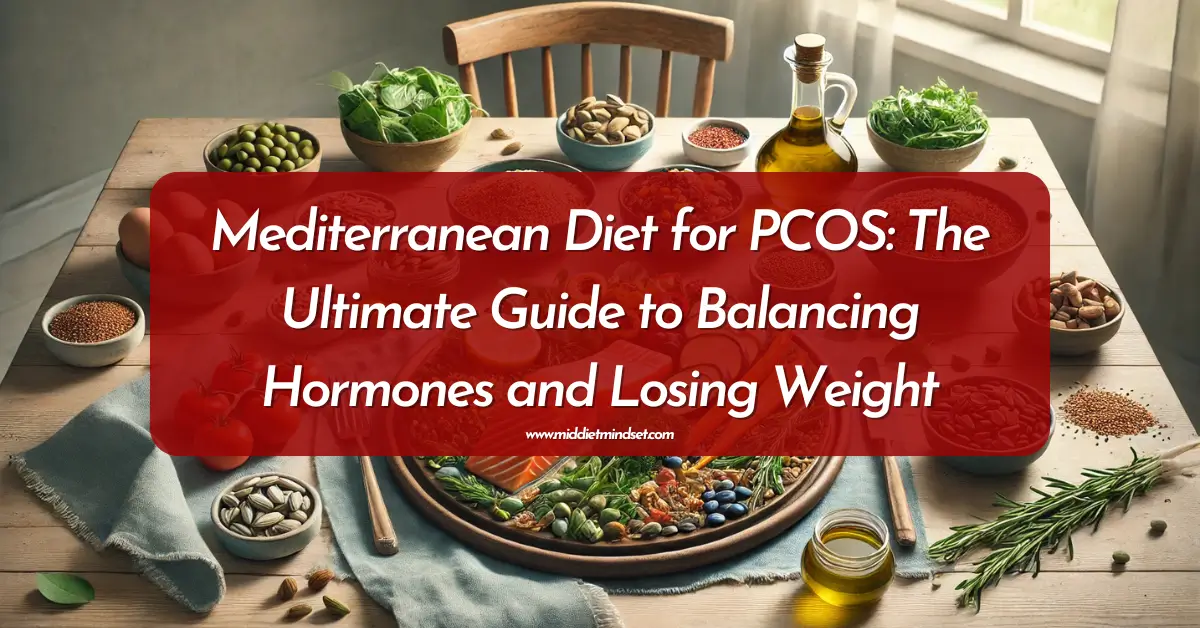Table of Contents
ToggleAre you looking to lose weight sustainably while enjoying delicious meals? If so, the Mediterranean diet might be the perfect fit for you! But let’s take it a step further. What if I told you that embracing a Mediterranean mindset—along with Mediterranean habits—could enhance the benefits of this flavorful diet? As an experienced registered dietitian specializing in weight loss through the Mediterranean diet and Mediterranean habits, I’m excited to share how integrating these strategies can help you achieve your health goals while savoring every bite.
Understanding the Mediterranean Diet
What Is the Mediterranean Diet?
At its core, the Mediterranean diet is about more than just what you eat; it’s about how you approach food. It focuses on fresh, whole foods like fruits, vegetables, whole grains, legumes, lean proteins (like fish and poultry), and healthy fats, especially olive oil. This diet also encourages a vibrant social aspect, promoting meals with family and friends.
Health Benefits of the Mediterranean Diet
Research has shown that the Mediterranean diet can lead to significant health benefits, including:
- Weight Loss
A diet rich in whole foods can help you feel fuller longer, making it easier to lose weight. - Heart Health
Studies indicate that following this diet can reduce the risk of heart disease and improve cholesterol levels. - Improved Mood
Some research suggests that the Mediterranean diet is linked to lower rates of depression and anxiety.
As I worked with clients on their weight loss journeys, I consistently noticed that those who embraced the Mediterranean lifestyle not only lost weight but also reported feeling more energized and happier.
The Power of Mediterranean Habits
What Are Mediterranean Habits?
Mediterranean habits are the routines and behaviors that align with the principles of the Mediterranean lifestyle. These habits can either work for us or against us, depending on their nature. When it comes to nutrition, the right Mediterranean habits can make a significant difference in achieving your health goals.
The Science of Habit Formation
Understanding how habits form can empower you to create lasting changes. The Cue-Routine-Reward model is a popular framework for understanding habit formation:
- Cue
This is the trigger that initiates the habit. For instance, the smell of freshly baked bread might cue a desire to snack. - Routine
This is the behavior itself. You might find yourself reaching for a slice of that bread. - Reward
This is the positive outcome you gain from the behavior. The delicious taste of the bread reinforces the habit.
Using this model, you can build positive Mediterranean habits that align with the Mediterranean diet.

How Mediterranean Habits Enhance the Mediterranean Diet
Developing a Mediterranean Mindset
The first step in enhancing your diet with Mediterranean habits is developing a Mediterranean mindset. This involves not just changing what you eat but how you think about food.
Mindfulness and Intentional Eating
One of the key components of the Mediterranean lifestyle is mindfulness. When you eat, take a moment to appreciate the flavors, colors, and textures of your meal. This mindful approach helps you savor each bite and can prevent overeating.
I remember when I first started practicing mindfulness in my meals. I would sit down with a beautiful plate of roasted vegetables, fish drizzled with olive oil, and a side of whole grain. Instead of rushing through my meal, I took my time to enjoy every bite. The result? I felt more satisfied and less likely to snack afterward.
Incorporating Mediterranean Habits into Daily Life
Meal Planning and Preparation
One of the best Mediterranean habits to adopt is meal planning. By setting aside time each week to plan your meals, you can ensure you have the right ingredients on hand and avoid the temptation of unhealthy choices.
Here’s how to get started:
- Choose a Day for Planning
Dedicate one day a week, perhaps Sunday, to plan your meals. - Create a Shopping List
Based on your meal plan, make a list of the ingredients you’ll need. - Prep in Batches
Spend a couple of hours prepping meals or ingredients for the week. This could mean washing and chopping veggies, marinating proteins, or cooking grains in advance.
Regular Physical Activity
Incorporating regular physical activity is another vital Mediterranean habit. The Mediterranean lifestyle values movement, whether through walking, dancing, or gardening. Aim for at least 150 minutes of moderate exercise each week.
When I encouraged my clients to add movement into their daily routines, I saw tremendous results. For instance, John, a busy father of three, found that taking evening walks with his family not only improved his fitness but also created quality bonding time.
Social Meals
Finally, don’t underestimate the power of sharing meals with others. Eating with family and friends can enhance your dining experience and promote healthier eating patterns. Studies show that people tend to eat healthier and consume less when sharing meals in a social setting.

Practical Strategies for Building Mediterranean Habits
Start Small: Micro-Habits for Success
When it comes to building Mediterranean habits, starting small is key. Instead of overhauling your entire diet overnight, try introducing one micro-habit at a time. For example, commit to adding one extra serving of vegetables to your dinner each night.
Use Habit Stacking
Another effective strategy is habit stacking, which involves linking a new habit to an existing one. For instance, if you already have a routine of making coffee in the morning, consider adding a healthy breakfast like Greek yogurt with fresh fruit right after you pour your coffee.
Tracking Progress and Celebrating Wins
Don’t forget to track your progress! Keeping a journal of your Mediterranean habits can help you see how far you’ve come. Celebrate your successes, no matter how small. When I started tracking my clients’ achievements, whether it was sticking to their meal plan for the week or completing a workout, their motivation skyrocketed.
Overcoming Common Barriers to Habit Building
Identifying Challenges
It’s natural to encounter challenges when trying to build new Mediterranean habits. Common obstacles include time constraints, lack of motivation, or not knowing where to start.
Strategies for Overcoming Barriers
- Prioritize Your Health
Make your health a priority by setting aside dedicated time for meal planning and exercise. - Seek Support
Surround yourself with a supportive community or enlist the help of a friend or family member. Sharing your goals with others can boost accountability. - Be Kind to Yourself
Remember that setbacks are a normal part of the process. If you miss a workout or indulge a little too much, don’t beat yourself up. Instead, refocus and move forward.
Conclusion
Embracing the Mediterranean mindset and building positive Mediterranean habits can transform your relationship with food and lead to sustainable weight loss. By focusing on mindfulness, meal planning, regular activity, and social dining, you can enjoy all the delicious benefits of the Mediterranean diet while creating lasting change.
So, why not start today? Choose one small habit to incorporate into your routine, whether it’s adding a colorful salad to your lunch or going for a daily walk. You’ve got this! The journey to a healthier you is not just about what you eat but also about how you approach your food and lifestyle. Let the Mediterranean mindset guide you towards a happier, healthier future.
F.A.Q.
At its core, the Mediterranean diet is about more than just what you eat; it’s about how you approach food. It focuses on fresh, whole foods like fruits, vegetables, whole grains, legumes, lean proteins (like fish and poultry), and healthy fats, especially olive oil.
Research has shown that the Mediterranean diet can lead to significant health benefits, including:
- Weight Loss: A diet rich in whole foods can help you feel fuller longer, making it easier to lose weight.
- Heart Health: Studies indicate that following this diet can reduce the risk of heart disease and improve cholesterol levels.
- Improved Mood: Some research suggests that the Mediterranean diet is linked to lower rates of depression and anxiety.
It’s natural to encounter challenges when trying to build new habits. Common obstacles include time constraints, lack of motivation, or not knowing where to start.

Nour is a registered dietitian, nutrition researcher, and founder of MedDietMindset. With a passion for evidence-based nutrition, she specializes in Mediterranean diet strategies, PCOS management, and sustainable weight loss. Nour is dedicated to transforming complex scientific research into clear, actionable guidance to support healthier, long-lasting lifestyle changes. Through her blog, she empowers readers to build habits that prioritize well-being, balance, and vitality.









